1. What are some of the things people think you do?
1.1. What people think you do
1.1.1. Sigurdur Birgisson
1.1.2. Randomly click things
1.1.3. Automate
1.1.4. Safety net
1.1.5. Gateway/Quality check
1.1.6. Just check off requirements
1.1.7. Input/output
1.1.8. Point out mistakes
1.1.9. Tell people when they've done things 'wrongly'
1.1.10. Don't know
2. Why this talk?
2.1. Wanted to see what the Testers thought
2.1.1. experiment
2.2. agile transition
3. @tonybruce77
3.1. Focus
3.1.1. Testing
3.1.2. People
3.2. http://dancedwiththetester.blogspot.co.uk/
4. Testing is
4.1. a job
4.2. a career
4.3. interesting
4.4. boring (to some)
4.4.1. depending how you do it
4.5. exciting
4.5.1. depending how you do it
4.6. a challenge
4.7. something we all do from birth
5. Realise
5.1. We ask questions
5.1.1. Stakeholders
5.1.1.1. Need different things
5.1.2. Customers
5.1.3. Requirements
5.1.3.1. Is this what is needed? Is this still needed?
5.1.4. Schedule
5.1.4.1. What we can do
5.1.5. Ourselves
5.1.5.1. Do I have enough information? How can I get more?
5.1.6. Testers
5.1.7. W
5.1.8. ?
5.1.9. We hunt information
5.2. Testers
5.2.1. Think
5.2.1.1. Lateral
5.2.1.2. Logical
5.2.1.3. Dark
5.2.1.4. Creativity
5.2.1.5. Different perspectives
5.2.1.5.1. User
5.2.1.5.2. Six Thinking Hats
5.2.1.5.3. Troublemaker
5.2.1.5.4. Stake holder
5.2.1.5.5. Developer
5.2.1.5.6. Hacker
5.2.1.6. Critical thinking is the intellectually disciplined process of actively and skillfully conceptualizing, applying, analyzing, synthesizing, and/or evaluating information gathered from, or generated by, observation, experience, reflection, reasoning, or communication, as a guide to belief and action.
5.2.2. Silliness
5.2.3. Relationships
5.2.4. Experience
5.2.5. Rationality
5.2.6. Irrationality
5.2.7. Experiment
5.2.8. Communication
5.2.8.1. Story telling
5.2.8.2. Questions
5.2.9. Information
5.2.9.1. Curse of knowledge
5.2.10. Analysis
5.2.11. Buy
5.2.12. Sell
5.2.13. Context
5.2.14. Collaborate
5.2.15. Curiosity
5.2.16. Investigate
5.2.17. Learn
5.2.18. Make use of all of our senses
5.2.19. Technical skills
5.2.20. Humour
5.2.21. Knowledge
5.2.21.1. Tacit knowledge
5.2.21.1.1. difficult to transfer to another person
5.2.21.1.2. has been described as “know-how”
5.2.21.1.3. (Henry) Bessemer process (1850 to 1855)
5.2.21.1.4. Example
5.2.21.2. Implicit Knowledge
5.2.21.3. Implicit and tacit knowledge are thought to be similiar but it's thought that implicit can be turned to explicit and tacit cannot
5.2.21.4. Explicit knowledge
5.2.21.4.1. knowledge that has been articulated, codified, and stored in certain media
6. A tester is somebody who knows that things can be different. - Jerry Weinberg
7. To finish - What do Testers do?
7.1. We are not a safety net
7.2. We are not a gateway
7.3. We are not a judge
7.4. We are not the voice of reason
7.5. Use a number of different approaches, techniques, soft skills,hard skills, knowledge, information, context, experience, investigative curiosity, constant learning and much much more to question.
7.5.1. We use different skills and personality traits at different times to achieve what we need to do.
7.5.2. Why?
7.5.2.1. We do this in order to provide information to help gain more information to help those who need to make decisions.
7.6. What I think
7.6.1. What about you?
7.7. Thank you @tonybruce77 http://dancedwiththetester.blogspot.co.uk/
8. Things to discuss?
8.1. What
8.1.1. Information providers
8.1.2. Team builders
8.1.2.1. mentoring
8.1.2.2. coaching
8.1.3. criteque
8.1.4. explorers
8.2. How
8.2.1. Investigate
8.2.1.1. question everything and everybody
8.2.1.2. facilitate
8.2.2. Share information
8.2.2.1. Building models of the system
8.2.2.1.1. it's valuable documentation
8.2.2.2. Radiate information to fellow colleagues
8.2.2.2.1. especially to other testers
8.2.2.2.2. brown bags
8.2.2.2.3. general overview of the system
8.2.3. Appropiate preparation
8.2.3.1. testing strategy
8.2.3.2. planning
8.2.3.3. tooling
8.2.3.4. heuristics
8.2.3.5. gathering experience on building heuristics
8.2.4. discussions
8.2.4.1. get people started on talking about insecure/feeble areas of their understanding of the system
8.2.4.2. brainstorming
8.2.4.3. ask strategic questions that verify the understanding of the team
8.3. Who
8.3.1. Everybody
8.4. Why
8.4.1. Provide information
8.4.1.1. decisions made
8.5. When
8.5.1. All the time
8.6. Maybe we should do like a primary and secondary.
8.6.1. Like introducing new processes could be a secondary
8.7. Clarify domain language
8.8. A tester can be
8.8.1. creative
8.8.2. detailed
8.8.3. good with language
8.8.4. good communicator
8.8.5. knowledgable
8.8.6. a facilitator
8.9. Prove
8.9.1. How can we prove our value?
